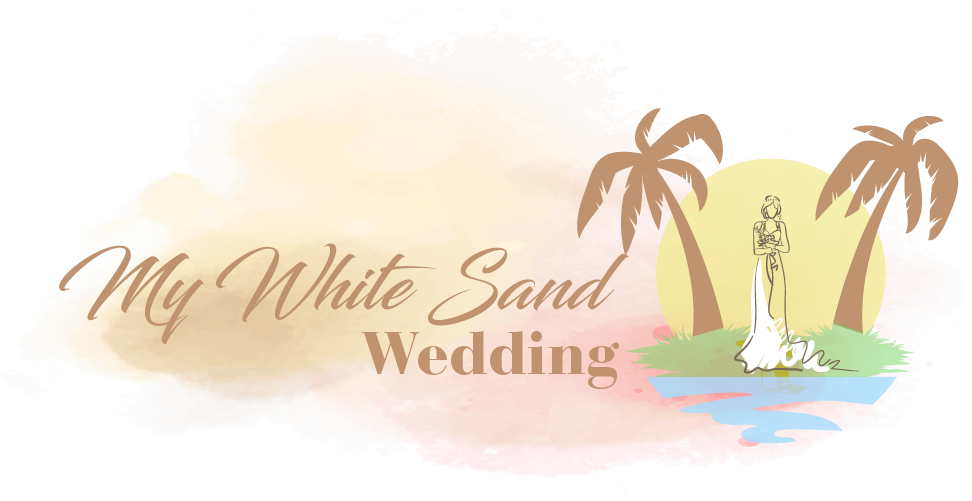Undoubtedly, white is the most popular color people choose for their wedding dress. Even some people who end up wearing colored dresses consider white at some point.
But then, choosing a white wedding dress is not set in stone; your wedding dress doesn’t have to be white.
The popularity of white wedding dresses stems from culture and economic influence. But those customs are not essential these days. You can have a wedding dress of any color.
In this article, we discuss wedding dress colors. We look into why white wedding dresses are commonplace, why some brides choose not to wear white, and much more. Read on for the details.
Table of Contents
Why Are Traditional Wedding Dresses White?
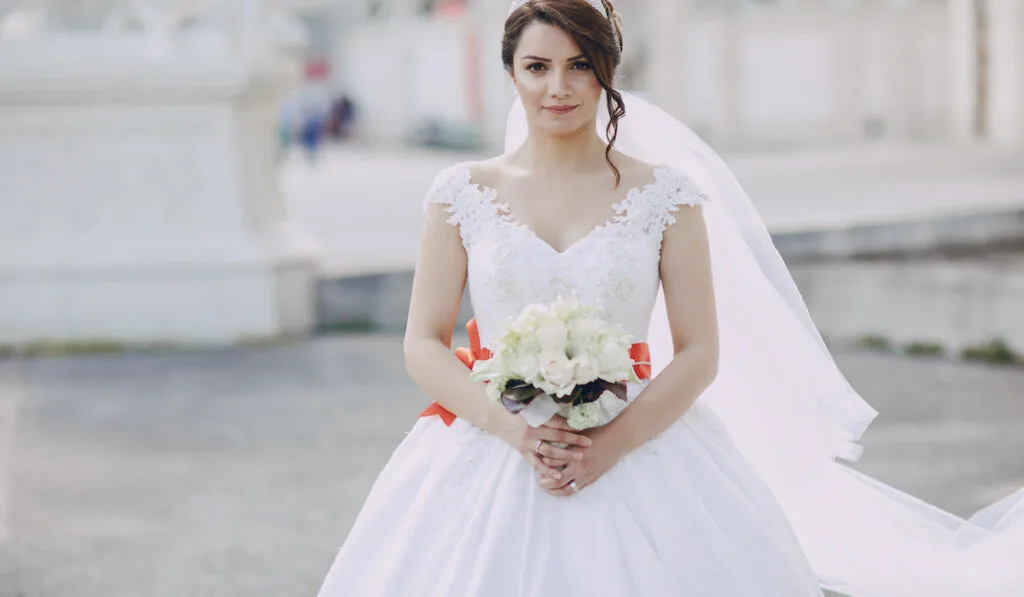
As hinted earlier, the popularity of white wedding dresses stems from ancient cultural and economic influence.
One of the cultural influences that may have contributed to the popularity of white wedding dresses dates back to the Romans.
Roman brides used to wear white tunics because the color white symbolized purity. White dresses represented the women’s virginity.
Another reason Roman brides wore white was that white was associated with Vesta – the goddess of the hearth, the home, and domestic life.
When the Roman Empire fell, the popularity of white wedding dresses faded amongst the Romans. In the Middle Ages, most brides just wore their best dress to their wedding.
Also, in the 1700s and 1800s, the color white represented grief. Therefore, most women did not wear white dresses at their weddings.
But then, Queen Victoria changed everything when she wore a white wedding dress for her marriage to Prince Albert in 1840. Her use of a white wedding dress most probably spurred the popularity, which has lasted till today.
In the days after Queen Victoria made them popular, white wedding dresses symbolized status and wealth.
Buying and maintaining them was expensive, so only the affluent wore them. But as time passed, white dresses became more accessible to everyone.
Around the time of the Second World War, the popularity of white wedding dresses started spreading across Europe and North America.
From that period to the end of the 20th century, white wedding gowns represented virginity again. They also symbolized commitment and prosperity.
Now that you know some history of white wedding dresses, you probably agree that your wedding dress doesn’t have to be white.
Why Do Some Brides Not Wear White?
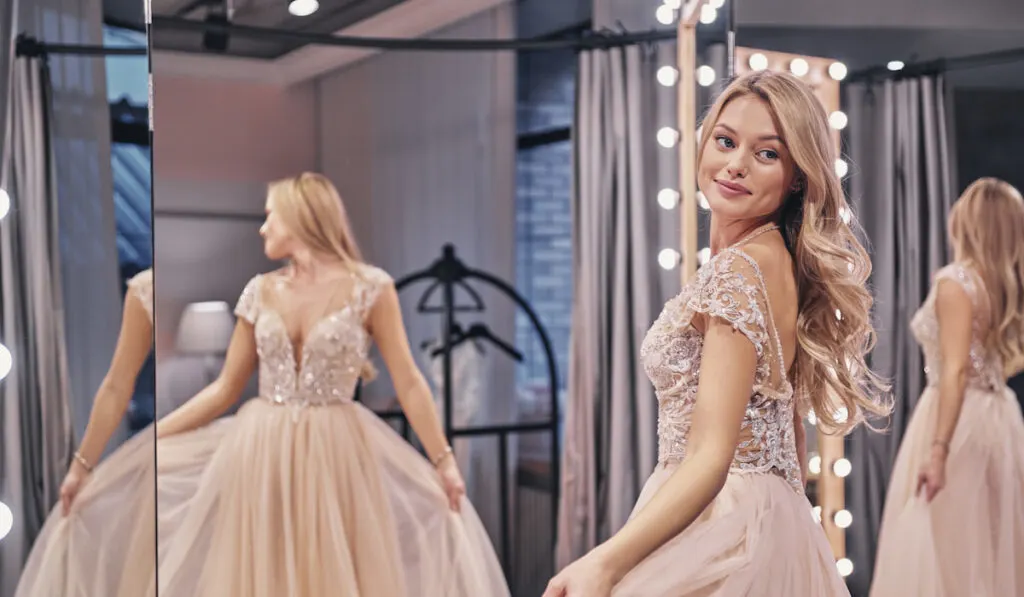
These days brides choose not to wear white for various reasons. Some of them include the following:
- Their culture features wedding dresses in colors that are not white, and they prefer what their culture offers.
- Some brides do not wear white because they do not believe a white wedding dress represents virginity or purity.
- Some brides do not wear white because of their personal preferences. They prefer their gown in another color – it could be their favorite color. It could also be another color that complements the wedding’s theme.
- Some brides do not wear white because of the concept that white dresses represent sexual purity. They stay away from white wedding dresses if it is not their first marriage or the idea does not hold true for them.
- White wedding dresses are relatively more expensive than wedding dresses in other colors. So, for some people, not choosing to wear white might be a budget thing.
Best Alternatives to White Wedding Dresses
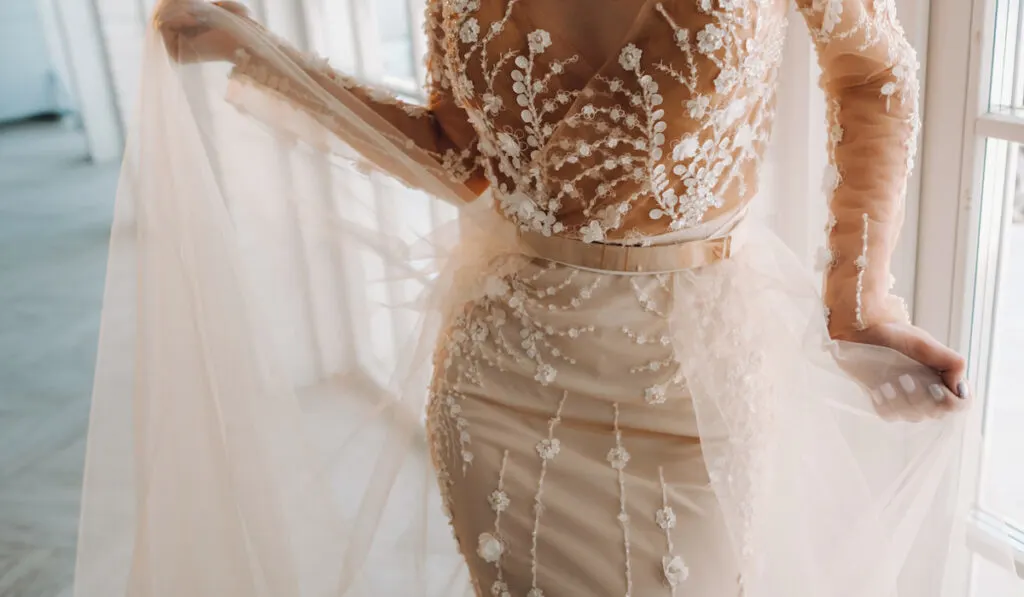
There is no universal best alternative to white wedding dresses.
The best substitute for white wedding dresses ultimately depends on you, the color that works best for you, and what you are most comfortable with.
However, if you are considering alternatives to white wedding dresses that retain the traditional bridal appearance, try wedding dresses with neutral shades.
Blush, champagne, silver, and ivory wedding dresses are some of the best neutral shade wedding dresses that can give you a traditional bridal look.
Blush wedding dresses go well with most complexions. But if you have an olive complexion, champagne wedding dresses might work better for you.
You will rock an ivory wedding dress pretty well if you have a pale complexion.
3 Other Wedding Dress Colors and How to Use Them
Cool Colors
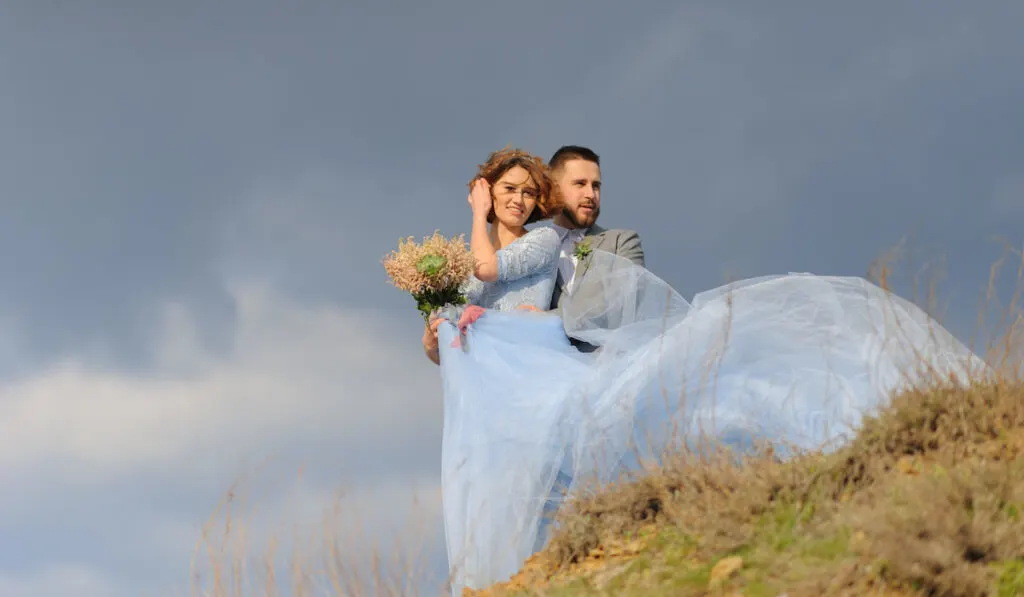
Blue – the only primary color amongst cool colors – is a top choice if you want to pull off modern and romantic.
If you are fair-haired, dim-colored blue tones will suit you well. But even lighter blue hues will turn out beautiful.
If you have dark-brown hair, slate gray, glaucous gray, cadet gray, and many other cool-toned grays will work for you. The combination often gives a fairylike style.
Jewel Tones
Jewel tones like ruby red, emerald green, and sapphire blue are a great way to infuse your everyday fashion style into your wedding dress.
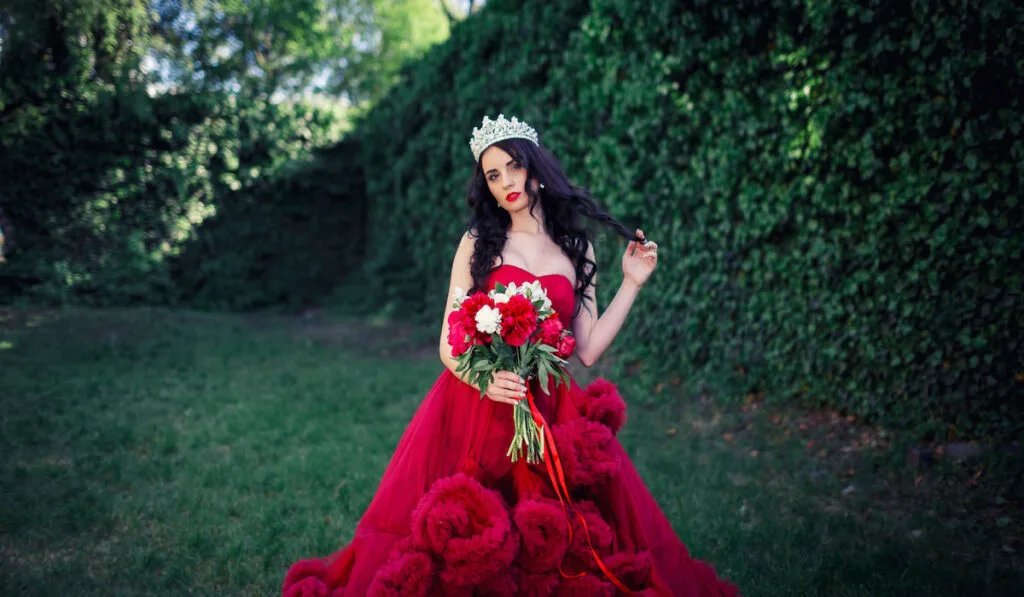
If emerald green makes you most comfortable and confident, you can stick with it when making your wedding dress.
You will stand out while maintaining the elegance, comfort, and confidence you are used to in that color.
Print Dresses
Print wedding dresses depict joyful and fun personalities. Of course, they are beautiful too – especially floral print dresses. So if this seems like something you’d love, go for it.
Wedding Gown Colors and Their Meanings
Black
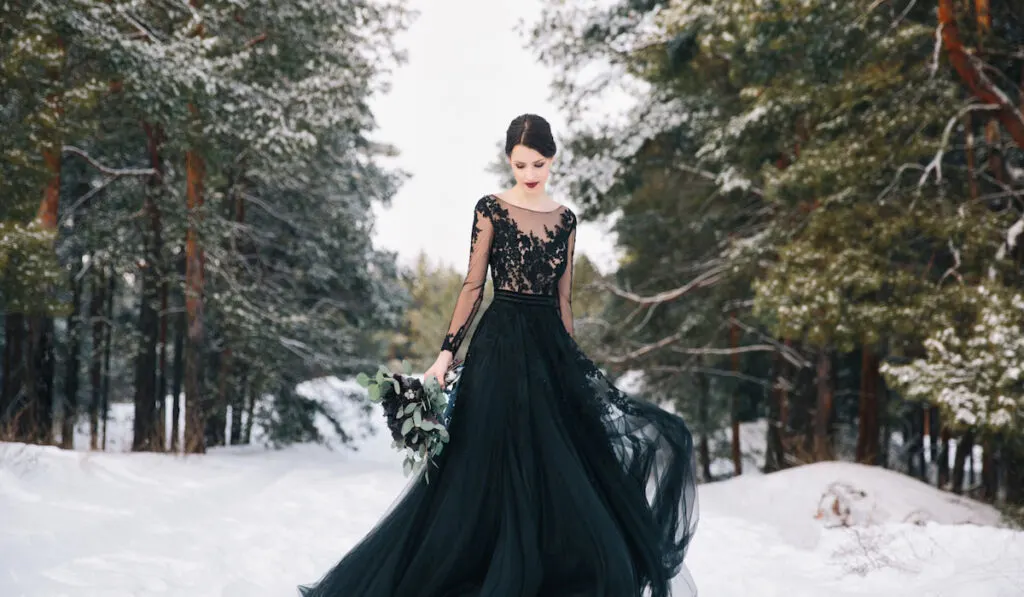
For many people, black is a creepy color for a wedding dress. However, people wear black wedding gowns.
Black wedding gowns represent various meanings, including class, depth, elegance, formality, mystery, and sophistication.
Blue
Blue wedding gowns are not very common, but people do use them. The color blue is a metaphor for the sky and waterbodies.
Blue symbolizes femininity, serenity, life, purity, security, lifetime commitment, and stability.
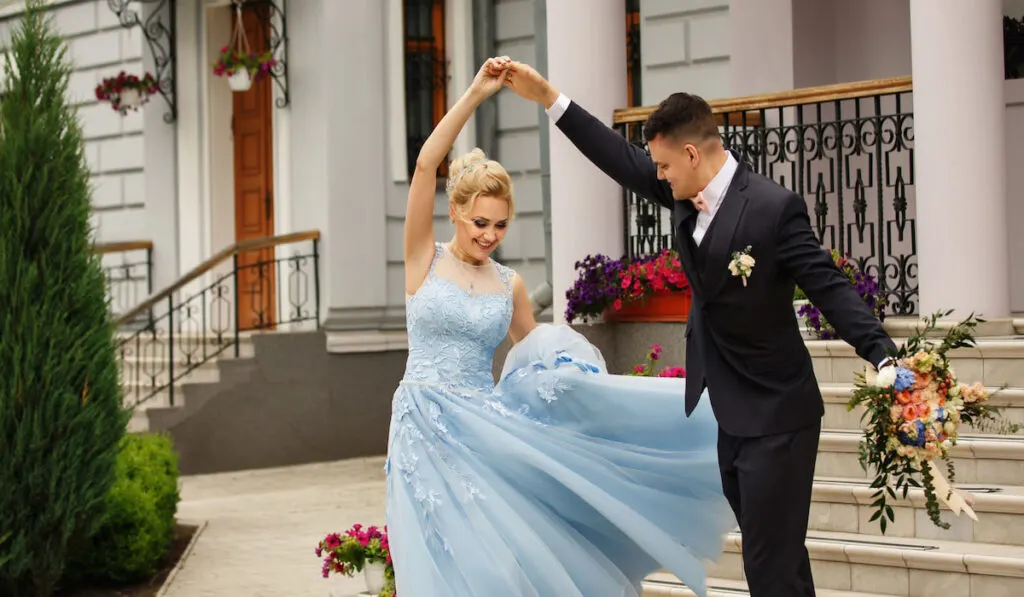
Green
Green is the color of nature. So green wedding dresses represent nature. Beyond that, green wedding gowns represent serenity, growth, renewal, and stability.
Grey
Grey wedding dresses add some maturity and serenity to the atmosphere.
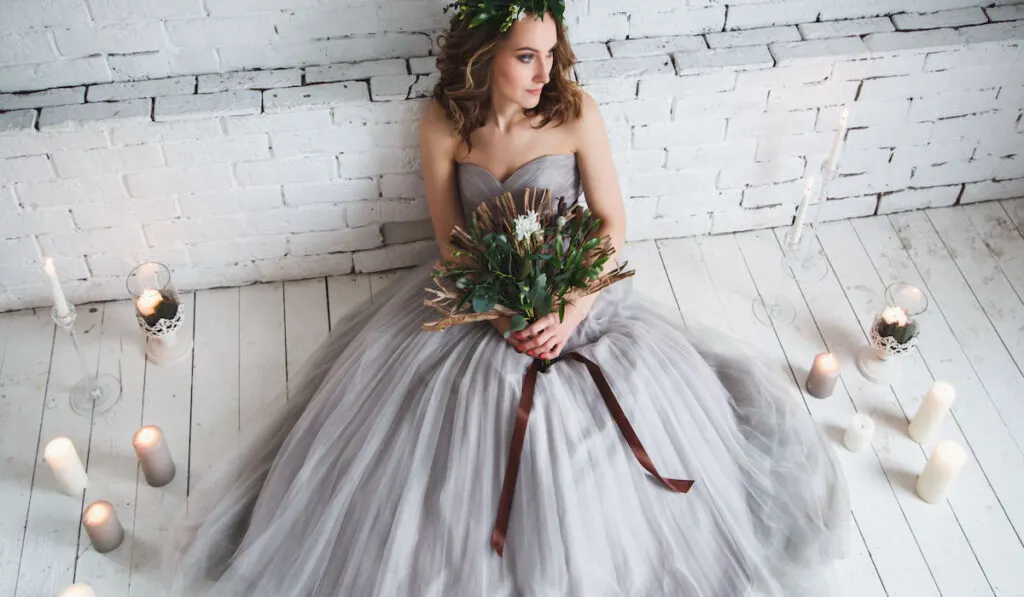
Ivory
Ivory is a traditional wedding gown color like white. This is why we suggest ivory as an alternative if you are trying to maintain the classic bridal look.
Some time ago, ivory somewhat represented blemished virtue. But these days, that does not apply.
Ivory wedding dresses are one of the top options when white does not complement your skin.
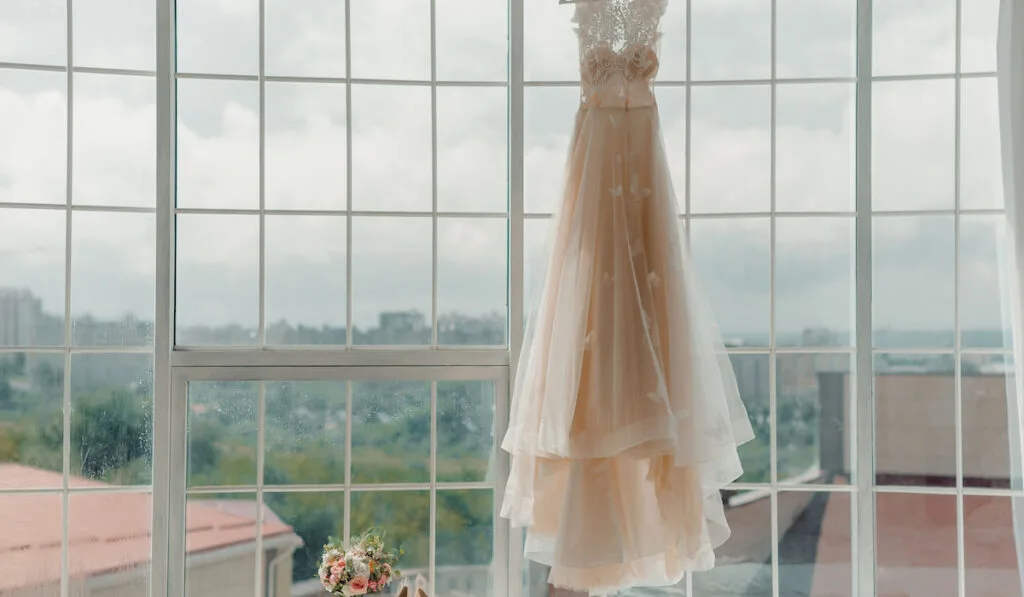
Lavender
Lavender wedding dresses are becoming increasingly common. Lavender represents gracefulness, sophistication, beauty, femininity, and royalty.
Orange
Orange is not a common color for wedding gowns at all. So, if you are wearing an orange wedding dress, you will surely make a statement.
Orange symbolizes brightness, youthfulness, warmth, and joy.
Peach
Peach wedding dresses and orange wedding dresses share some similar meanings. Both represent renewal and youthfulness.
Peach dresses also represent immortality.
Pink
Pink wedding dresses are always easy on the eyes. Unsurprisingly, they have warm meanings.
Pink wedding dresses represent childlike purity, femininity, health, love, innocence, and life.
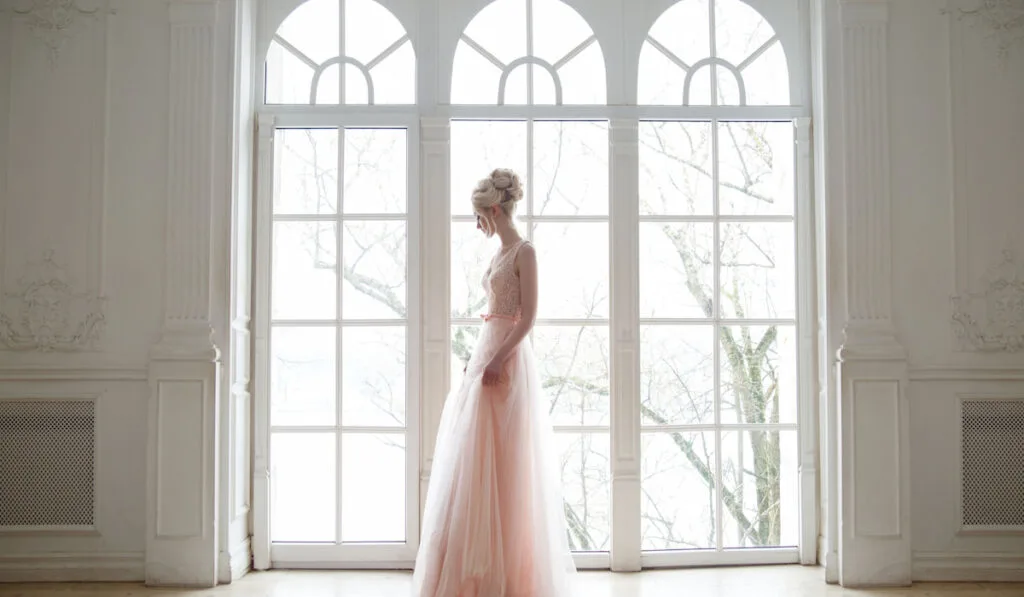
Red
Red wedding dresses are pretty popular in many cultures. Red represents energy, excitement, love, and passion.
Aside from these meanings, some brides wear red wedding gowns to make a fashion statement for their nontraditional weddings.
Silver
Silver wedding dresses are one of the options you can consider if you want to retain some sense of the traditional bridal look.
Silver represents elegance, radiance, confidence, and modernity.
White
White wedding dresses – the most popular – symbolize innocence, light, and goodness. Also, people still associate it with virginity and purity.
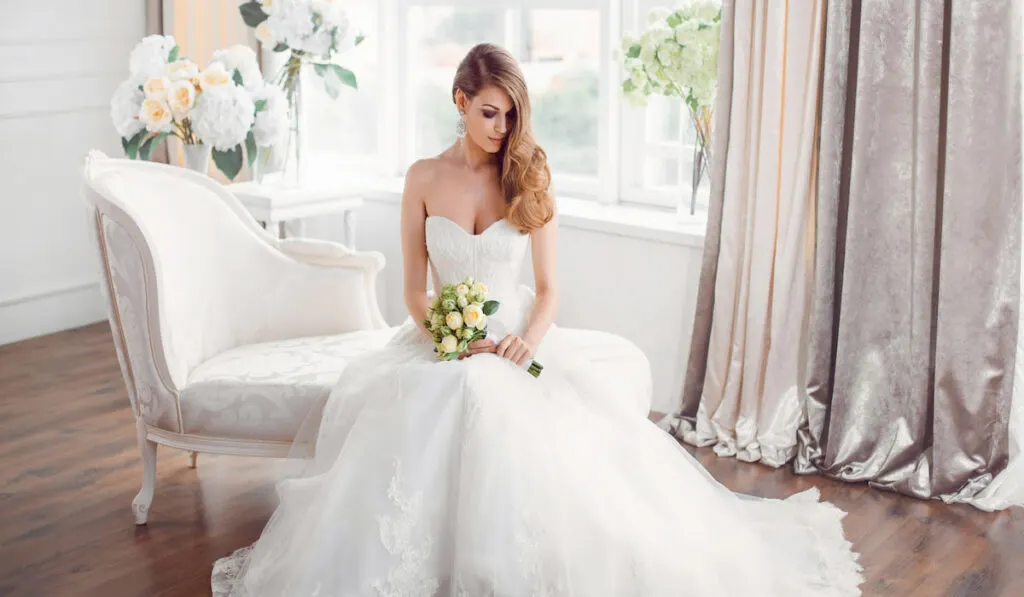
Final Take
While white is the most popular wedding dress color, you do not have to wear a white wedding dress. Your wedding dress can be green, blue, black, grey, red, or anything you want – as long as it works for you.
Also, if you love the traditional bridal look and white seems unsuitable, you can try ivory, silver, blush, or champagne wedding dresses.
Resources
- https://news.osu.edu/why-do-brides-wear-white/
- https://www.southernliving.com/weddings/dresses/white-wedding-dress-origin-meaning
- https://www.quora.com/Why-do-some-brides-not-wear-white
- https://qz.com/472945/the-white-dress-is-a-fantasy-the-wedding-industry-spun-to-make-us-spend-more
- https://heyweddinglady.com/fab-bridal-alternatives-white-wedding-dress/
- https://vowsbridal.com/2012/07/09/wedding-gown-colors-what-do-they-mean/
- https://weddingknowhow.com/wedding/wedding-dress-color-meanings/
